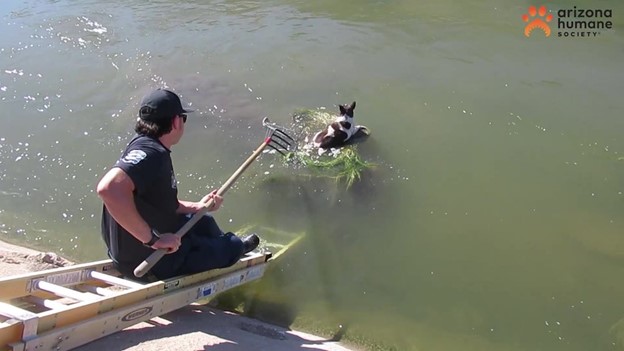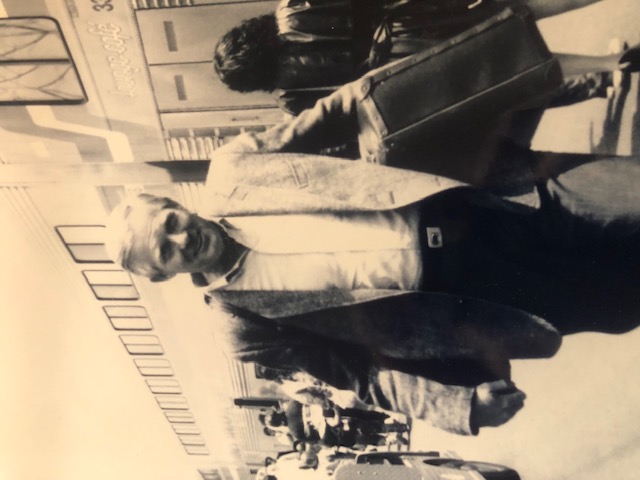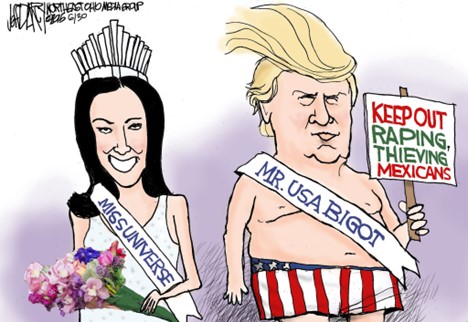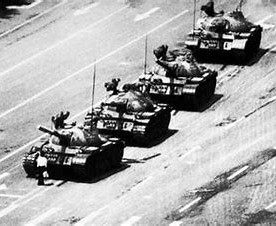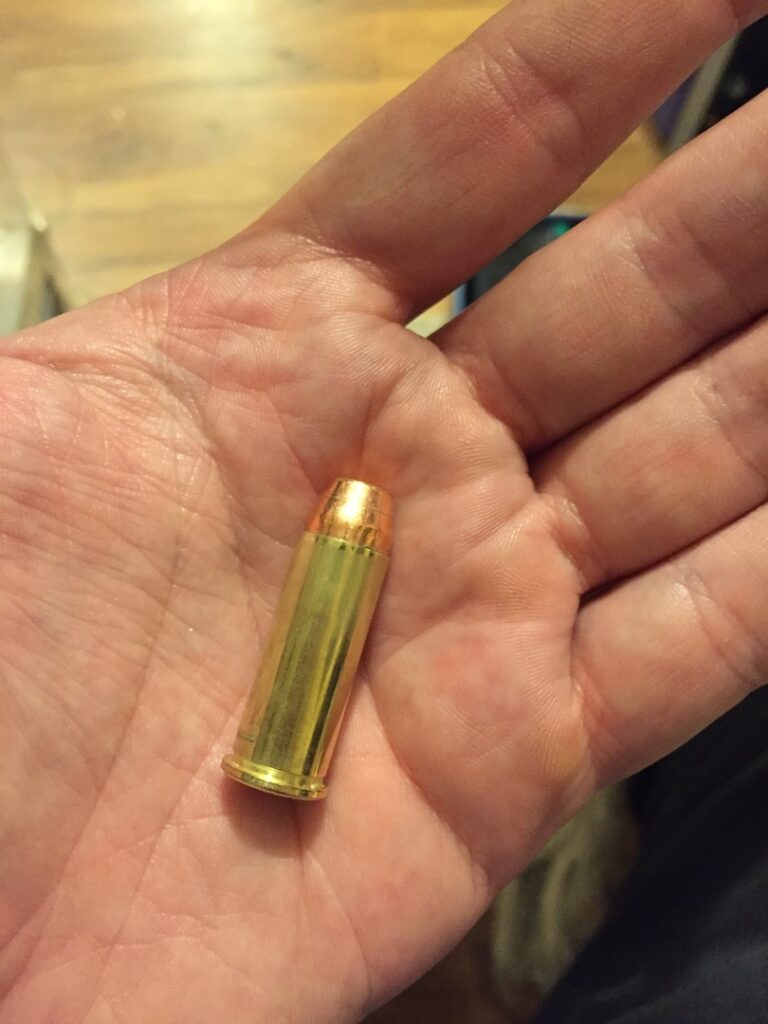Chapter 53.5
Like Biden, I am old now. Well maybe not that old, but close and like him, no one much thinks about coming to me for council. I make silly mistakes. Like not long ago toward my end at Vote Smart, when I needed to rush to the bank before it closed to get a document notarized for a grant request.
I frantically looked around my desk. Couldn’t find it. I went up to the bedroom, thoroughly searched the car, the patio, the living room, the kitchen, both bathrooms and storeroom. Nothing! I then did it all again. When it was too late to make it to the bank even if I found it, I flopped down on the couch spewing every vile expression I had collected in life, just as the document appeared. There it was in the one place I had not looked, flailing in the air in my very own hand.
That is my excuse for having bypassed a chapter I wrote many chapters ago, but somehow overlooked in my countless revisitation to the things I wrote.
So here it is the lost chapter:
NATIONAL POLITICAL COURAGE TEST
Land disputes with well-educated Oregonians soiling themselves over the thought of darker peoples were not the only distractions.
More fateful was the growing number of less accomplished, self-serving political applicants muddying elections with misinformation.
It would be an expensive effort and called The National Political Awareness Test. A stupid name for the crucial test of any applicant for any job, only applied to in this case to those that wanted to run citizen’s lives.
We began the effort as the means to gather the issue positions of the candidates during our early testing back in in 1990 in North Carolina and Nebraska. Back then, our staff of one, Lorena O’Leary, and I contacted each congressional candidate or their campaign and asked them to respond to questions, polls showed voters were interested in. But it was not until the news media picked up on what we were doing that most candidates were scared into doing the right thing and responding.
It gave us the notion that it took a certain amount of courage for a candidate to take the test and we should be calling it a Courage Test.
By the time we set up our offices at Oregon State, in 1992, the staff and students were applying the test to all congressional candidates including the presidential election.
The staff put on the most amazing full court press to pressure every candidate to do what we called “the right and honorable thing” by answering the people’s questions.
It was an exhausting effort, to ensure that every campaign was well pressured, we convinced the media and all our board members to participate.
The test was meticulously designed:
First, for an issue question to make it on to the questionnaire it had to overcome a number of hurdles.
- At least one polls over the prior three-year period would have to show that the employer (the people) thought it was of importantance.
- Party leadership comments had to be gathered showing the issue was likely to be dealt with in the coming congress and the various interests concerned with the issue had to state that it was a key concern.
- Questions for the test then had to be reviewed by a cadre of Political Scientists, representing every state. Their jobs were to make sure the issues were germane in their state and that the language of our questions was in proper form and staff was not tripping over some sub-conscience partisan prejudice.
- Finally, each question had to be reviewed by our entire Founding Board to make sure they did not see some advantage or disadvantage to their Democratic or Republican parties or any other party. We had several independents and third parties on our Board.
When the questions had passed this extensive muster, staff were set free to test each candidate’s willingness to provide what we considered essential information to voters.
The staff was not just told to send out the questionnaires. Oh no! The demands placed on them were of a standard that had never been seen before and would never be equaled again.
They first had to organize over 200 daily newspapers and national media to partner with and help apply pressure to the candidates along with key members of both parties from our Founding Board.
In the mix of demands to take the test would be those by national leaders of the candidates own party, a national media outlet (CNN, Fox News, PBS, National Journal, etc.) and a key one from their own district.
If the candidate did not respond to any of them, they received a final written red warning card saying the deadline was up and they must respond or be listed as having flunked the test.
Furthermore, every communication had to be documented. If a staff member or student talked to a campaign they had to report when they communicated to the campaign, who they talked to, and what transpired in the conversation.
From Vote Smart’s standpoint everyone took the test whether they answered questions or not. It was a measure of their courage to answer the voter’s questions. If they passed, they made our Honor Roll, if they failed, they were put on a Flunk List.
Most of the candidates, even most of the presidential candidates, some angrily. However, the two that actually won their primaries: Bill Clinton responded by sending us four creates of position papers saying you can find my answers in here, while Jeb Bush, helping to run his father campaign said, “Yes he definitely going to answer. It is on the President’s desk.” But the answers never came.
Criticisms were expected and immediately dealt with:
“The test is to long.” We shortened it to 20 minutes or about .0001% of the average time congressional candidates spend collecting money.
“True and false or multiple-choice questions are too confining.” We allowed them to just comment on the question, any response was considered passing. One commented, “This is a dumb question, and you are a dumb ass organization.” That answer passed our test. The answers did not need to be germane to the question. All we wanted was a response that we could print word for word.
“I am campaigning now and too busy.” – We gave them six weeks to answer.
“I have not considered all these issues.” – We let them leave 30% of the questions blank and still pass the merits of the test.
We treated all candidate responses just like any other factual data we collected:
- It was entered into a hidden database verbatim.
- It was proofed and verified by the person
data entering.
- Like in all of our systems, supervisors
put in intentional errors forcing proofers to catch them all and no other.
With the responsibility to ensure voters the facts, just the facts, and to protect the candidates with precise accuracy about what they said, did and their histories the data had to be perfect.
We did not make mistakes. In fact, when the Markle foundation did an independent study using one thousand randomly selected families to review the political databases of the New York Times, CNN, Fox News, Harvard University and a half dozen other institutions they discovered that Vote Smart was by far the best, most accurate and most useful.
Sometimes candidates would try and contort the test for political advantage.
There were hundreds of examples. Here are a few:
A long-term Democratic congressman from Michigan had passed the test as did his opponent. Michigan being a strong NRA state they both reported opposition to any gun control measures. However, a massacre had just occurred at Columbine High School, so two weeks before the election with polls showing the incumbent in danger of losing, he called to say he had made a mistake on that gun control question. He demanded to be allowed to change his position and state that he was opposed to guns like those used in the massacre. Well, we cannot say a position is other than what the candidate is now saying. With new knowledge a candidate can have a change of opinion. So, we changed his response in our records and then, within a matter of hours, he saturated TVs with ads condemning his opponent for “His heartless support of such deadly firearms.”
Or then there was this: Both George W. Bush, running for governor against the Texas incumbent Ann Richards took and passed the test. Allegedly reviewing Governor Richards responses, Bush put out advertising condemning Ann Richards for supporting the status quo on welfare reform and adding, if you don’t believe me call the non-partisan, non-profit Project Vote Smart.
There was no record in our data that showed Richard’s had said any such thing. Many Texans, including supportive Vote Smart members got very upset with us, thinking we were taking part in his campaign. I called the prominent republicans on our board and asked if they would stick with and defend our staff, students and volunteers or would they defend Bush? To a person they agreed to put out a letter condemning the Bush ads as a willful effort to mislead.
In several cases, candidates threatened lawsuits should we not remove them from our records. We did not. Thankfully they never filed. We could not afford to hire attorneys to defend ourselves in every state.
Attacks like these ended up requiring us to have two letters at the ready. If a candidate was using Vote Smart in an attack ad and the information the attack was using was false, we condemning the attacker for a willful effort to mislead voters. If an attack used Vote Smart’s name and what they were saying was true, a made a more modest response saying the candidate was not authorized to use our name and should emphasis their own credentials for office.
It was Vote Smarts naive view that if you would not accept such attracts from someone applying to be your babysitter, perhaps you shouldn’t accept it from someone applying to run your life. It was of course a completely ineffective letter.
Occasionally candidate efforts to avoid us became truly goofy as in one student’s sixth effort to compel a democratic congressional candidate:
Intern: “…You said you were going to provide your answers. Tomorrow we are announcing the California results, you need to get them in today or we must report that you would not.”
Candidate: “Oh, is the Vote Smart. You guys are so terrific and so long overdue in this country. I am going to get my answers in, I promise. But I just cannot focus on it today. My mother passed away last night, and I am just not able to focus on politics right now.”
Vote Smart is not heartless, so we announced the results but did not include this race to give her a chance to respond later. After two weeks passed the intern noticed that the candidate was making campaign appearances and called her again.
Intern: “Hi, I’m with Vote Smart, we noticed that you were again campaigning and to be fair to your opposition we really cannot wait any longer for your responses. Can you send them in today?”
Candidate: “Yes, Vote Smart. I got up this morning thinking about all of you and got my check book out to contribute to your terrific work. I am going to get those answers to you right away, but I cannot do it today. My mother isn’t feeling well, and I have to take her to the doctor.”
That story became staff famous as “The Resurrection!”
The real problem was becoming clear: The candidates were scared, not of Vote Smart but of opposition research, their opponents would review their answers find vulnerabilities and attack them. Back then, many candidates still naively thought that for an attack to be effective it had to be grounded in some measure of reality. Not so! Today, you can say anything you like and find partisans defending the absurd.
But back then it was different. Jim Sasser, a Tennessee U.S. Senator with a would be Majority Leader future took the most irregular route to flunking the test, he decided to cheat. We had some experience with candidates suing us, for simply reporting that they would not answer questions, but this guy had a head too big to fit outdoors. When his campaign heard that we announced the results of each state delegation’s response rates at each state’s capital, he had his press secretary call our Oregon office. “If you guys come to Nashville and announce that Senator Sasser refused to answer your questions, we are going to take you in front of the IRS and strip you of your non-profit 501-c3 status.”
It was nutty but intimidating. All we did was ask questions and report responses. But a week later Sasser’s guy called again making the exact same threat only, this time, following it up by demanding that we send copies of our Articles of Incorporation, our IRS 990’s and copies of any letters validating our tax-exempt status, all in an effort to bully one of our interns and the organization.
Sasser was a Democrat, so I conferred with some of the prominent democrats on our board and asked, “Are you going to stick with the staff and students here or are you going to back this guy.” To a person, they all agreed to tell Sasser to take a leap. Well, they didn’t exactly say that, but that is the way I interpreted the conversations and conveyed it to our staff and students.
A few days later I found myself in the Nashville state capitol holding a press conference. I simply gave a standard report on the results on Tennessee candidates and then closed by stating that we had this threat from a Sasser staff member, that I thought was probably just a “lose cannon” on his staff.
Sensing blood, the media sharks bolted from the newsroom over to the Sasser campaign headquarters. Unfortunately for Senator Jim Sasser, he was in and came out trying to find some room for his head and claimed that his campaign had never heard of Vote Smart, that we were lying, that no one had contacted them, that we were “probably part of the right-wing Christian Coalition.” His press secretary chirped in with some comment about us being just a bunch of young students, “Yah, they’re lying.”
The young students, who had worked so hard on the test went supernova because they had been extra careful “With this Sasser guy.”
They rushed to me, in an overnight all their documentation. Even I was impressed. They did not have just the 6 required documented contacts; they made a dozen documented contacts because they were pissed about the threats. In the box of documentation, they had all their notes on each contact, even the fax receipts from the times Sasser’s campaign manager asked to have more information or additional copies of the questions sent. Plus, one very interesting item that was about to make national news and make Bill Frist, not Jim Sasser your future majority leader.
The day after the press conference, I invited any media that was still interested to meet with me in my hotel room at noon. The room was packed. There, on the bed, I laid out all of the evidence. Notes from calls with his campaign manager, press secretary and two or three other staff, the fax receipts and copies of all the letters and emails that had been fired back and forth. When the media was finished looking it all over, one reporter who clearly was there to defend Sasser asked, “How do we know you didn’t just manufacture all this junk? Senator Sasser’s press secretary would never have made any of the calls you claim.” I gave him a baleful look and asked him if he knew Sasser’s Press Secretary? He said, “Yes, very well, I went to school with him “he wouldn’t lie like this.”
“Well then, you won’t have any trouble recognizing his voice, will you?” His jaw slackened as I hit the play button. The voice making the threat on the tape was so arrogant and nasty most of the media just chuckled and off they went, a day or so later Sasser issued us an apology which the national wires picked up on and a month or so later we took both credit and blame for the victorious new Senator Bill Frist.
In the early years of Vote Smart most candidates did take the test with both republicans and democrats doing so at about the same rate. The major parties grew uglier, more vicious and far less able to reconcile anything. They found success in making each other look like pigs but they both grew up on the same slop in the trough.
These ignoble behaviors would become increasingly despicable in the years ahead and become accepted, expected even required attributes of America’s elected leadership. Honorable conduct was leaving the building and would become a detriment to any candidate that wanted to win.
This behavior and the anger it engendered would come to defile mainstream media where traditions of dispassionate objective reporting would fall victim to more entertaining, more lucrative, partisan political preachers who happily exchange responsible journalism for twisted impressions of the truth to gain the mobbish loyalty of whatever viewer group they can muster to sell products.
At Washington’s Mayflower Hotel, I sat down with the Wall Street Journal which said they were interested in a story we had about an astonishingly deceitful organization called the Club for Growth. The group had stolen our logo, stolen our name, then did a mock-up of our web site and fabricated nasty facts about a candidate they did not like. They stuck this entire fiction in a television attack ad.
I went over all this with the Journal, showed them all the proof that made for a solid piece on the disintegrating conscience of America’s political culture. Turns out that fear of any penalty for maligning facts, honor or principle was no longer a coin on the table. In part this was due to the fact that today it is hard to find the difference between politicians running for office and politicians masquerading as journalists.
Things could be said and done without regard for truth, it simply no longer mattered what one said. Reality was becoming expendable, even a liability if you wanted to win office or win an audience.
Dishonesty had become so common place that it garners little interest. Viewers rivet their attentions to more siliceous stories, whether they be true or not true.
Not long ago this Club for Growth, with its millions spent manipulating voters’ fears, now caught with its pants down, would have gotten some media attention. But only the Wall Street Journal fainted any interest at all. At the Mayflower the facts were laid out and the “journalist” sent to consider the story pretended real interest and concern in the meeting and assured me he would follow up.
Nothing came of it. Turns out that Steve Moore, one of the Journal’s golden boys, the one assigned to meet with me that day at the Mayflower was a founder of The Club for Growth.
A hundred years earlier, Mark Twain noted that “A lie can travel halfway around the world while the truth is putting on its shoes.” Today the lies are so many, fired with such rapidity and with an effect so alarmingly instant, that the truth no longer bothers to get out of bed.
(New chapters will be added roughly once a week)
Richard Kimball, Vote Smart Founder 1988
Sign up on my Blog at: richardkimball.org
